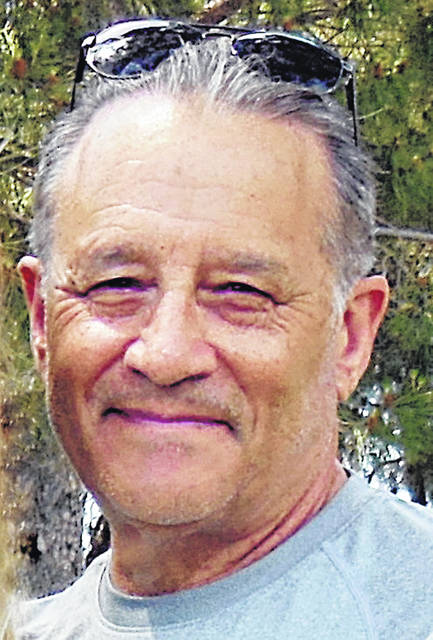
Anyone who thinks that the COVID-19 pandemic won’t have a lasting impact on the national and international economic landscape is likely suffering from the same narcolepsy virus that affected Rip Van Winkle.
A leading Ohio employer, the Honda Motor Company just announced a 47 percent quarterly sales drop, and an expected drop in sales from this past fiscal year of 64 percent. Of course, much of this has to do with the economic dynamics of the pandemic, but the executive vice president of sales, Seiji Kurai-shi, expressed the need for Honda to beef up online sales.
Some millennials might whisper that that lesson should have been learned 20 years ago when Amazon introduced e-commerce to the private sector. Iconic companies that have failed that lesson and have either closed or filed for bankruptcy protection include Neiman Marcus, J.C. Penny, Brooks Brothers, J. Crew, Pier 1 Imports, Hertz, Dean & Deluca and Peebles, Gold’s Gyms, Ann Taylor, Lord and Taylor, to name just a few. However, many small businesses will never recover. Public television (PBS) reported this week that 300,000 small businesses have closed permanently, and those include restaurants, bars, small and large traditional retail. And by the way, all the employees who have worked in these businesses have to work through the grind of unemployment, filing for unemployment insurance, retraining, and job search for what next?
Who’s flourished in this afflicted economy? Apple ($2 trillion market value) UberEats; GrubHub; telehealth services; pharmaceuticals; rural real estate; online retailers; online educational platforms; online workspace companies like Zoom, Go-To-Webinar and Citrix; and, of course, Amazon and Walmart. I should also add larger businesses who now realize they can save money by having employees work from home and travel less. Renewable energy has remained strong and the Yale School of Environment believes that, “Renewable energy could emerge on top after the pandemic.” Simon Eaves, managing director of the asset management company Capital Dynamics, has a similar view: “COVID-19 is a terrible thing, but it doesn’t impact how much the sun shines or the wind blows. Renewable energy is clearly robust in this market.”
“What’s past is prologue” (Shakespeare), and this pandemic prologue sets the stage for what’s to come, some of which is obvious and some not so. Wayne Gretzky’s famous line fits: “A good hockey player plays where the puck is. A great hockey player plays where the puck is going to be.” This holds true for companies as well as people who want to be or remain gainfully employed. Walmart and L.L. Bean figured this out early and have developed robust online sales. Brooks Brothers, Neiman Marcus and J.C. Penny drowned in the wake of competitors’ online sales.
For a nation known for its financial capitalism, savvy shareholders, and elite entrepreneurs, too many people and businesses failed to understand the conjunction between the virus epidemic and the economy. The great irony of this great pandemic has been that when you open up too soon you kill people, jobs and the economy. The United States has 4 percent of the world’s population and 25 percent of the world’s pandemic deaths. It’s a tragic and embarrassing statistic. Is it the result of misinformation, denial, a culture of brash individualism, incompetence, failed leadership?
According to University of Chicago economist Austan Goolsbee, “The best way to fix the economy is to get control of the virus.” Seems obvious. Rule number one of political leadership is if you want to get re-elected, the broad well-being of society is job number one. CEOs might heed that advice too. For executive leadership, leaning into the direction of the puck, post-pandemic, will be critical.
Post pandemic, we need to win the contest of competing nations in a radically changing world. China has worked at catching up to the U.S. by stealing U.S. technology and intellectual property, reverse engineering everything from American supercomputers to Russian fighter jets. Now China is trying to leap-frog us in artificial intelligence. Some wish for nothing more than to go back to the way things were pre-pandemic; but that’s where the puck is, not where it’s heading.
Here are some things to think about.
First, China makes economic decisions in real time. Its economic policy is industrial policy on steroids, where governments focus on the most productive pattern of investment, favoring business sectors that promise to be strong international competitors. That’s not socialism, folks, it’s enlightened capitalism. If the United States wants to avoid drowning in China’s wake, we will need industrial policies that will make us super competitive in a globalized economy.
Second, free trade only works if all sides play by the rules. China hasn’t and it doesn’t seem to care as long as it wins. Pankaj Mishra, a political essayist wrote in the New York Times: “Why shouldn’t China’s rise have happened the way it did, with state-led economic planning, industrial subsidies and little or no regard for the rules of “free trade?”
Deng Xiaoping, China’s economic conversion artist who was the driving force behind China’s radical economic transformation once put it bluntly: “Development,” he said, “is the only truth. If we don’t develop, we will be bullied.”
America needs strong political and corporate leadership to emerge from this virally-induced economic slump. That means 21st century development policy, and support for aggressive and forward-thinking entrepreneurship. It also means that post-pandemic development needs to be based on new economic realities, industrial, technological, trade and climate-focused realities. The truth is: “If we don’t develop, we will be bullied.”
Bill Sims is a Hillsboro resident, an author, and runs a small farm in Berrysville with his wife. He is a former educator, executive and foundation president.


